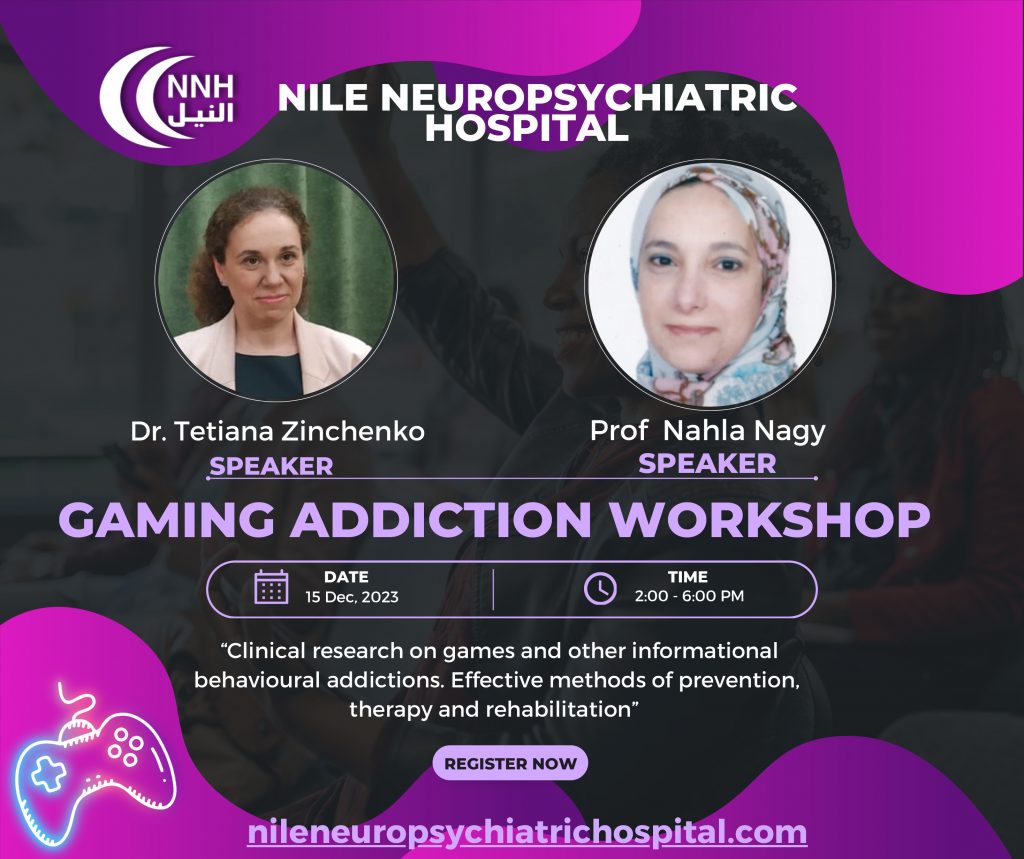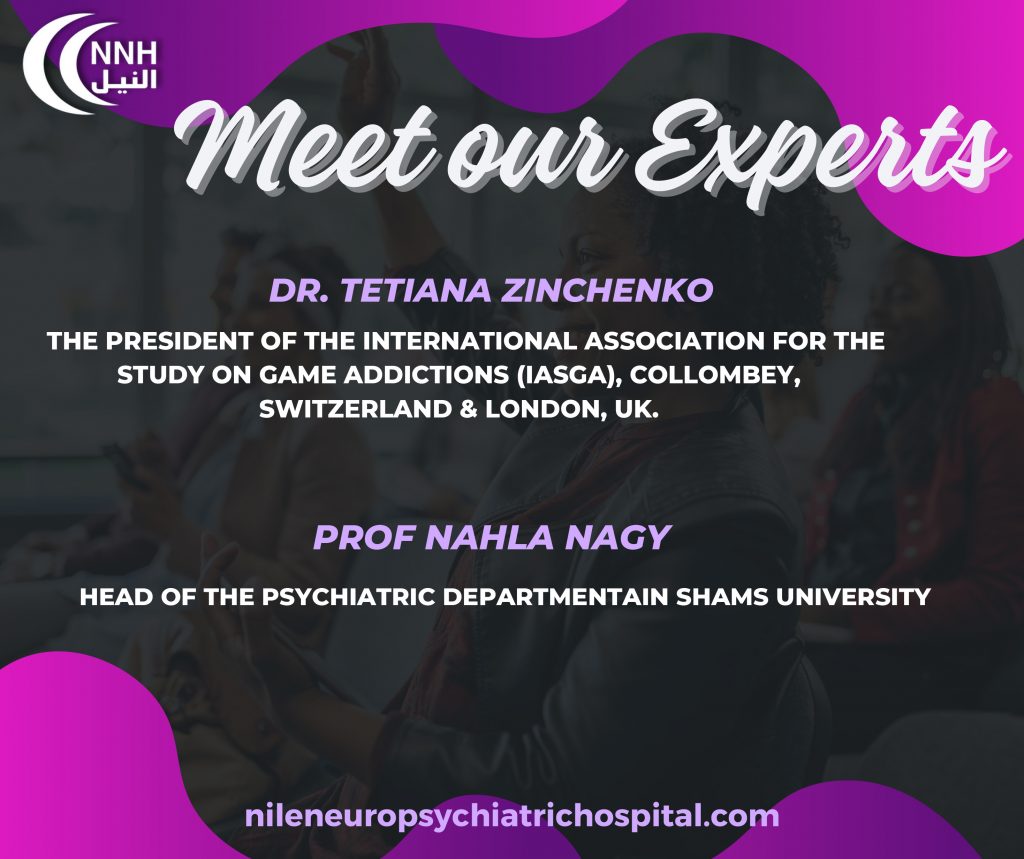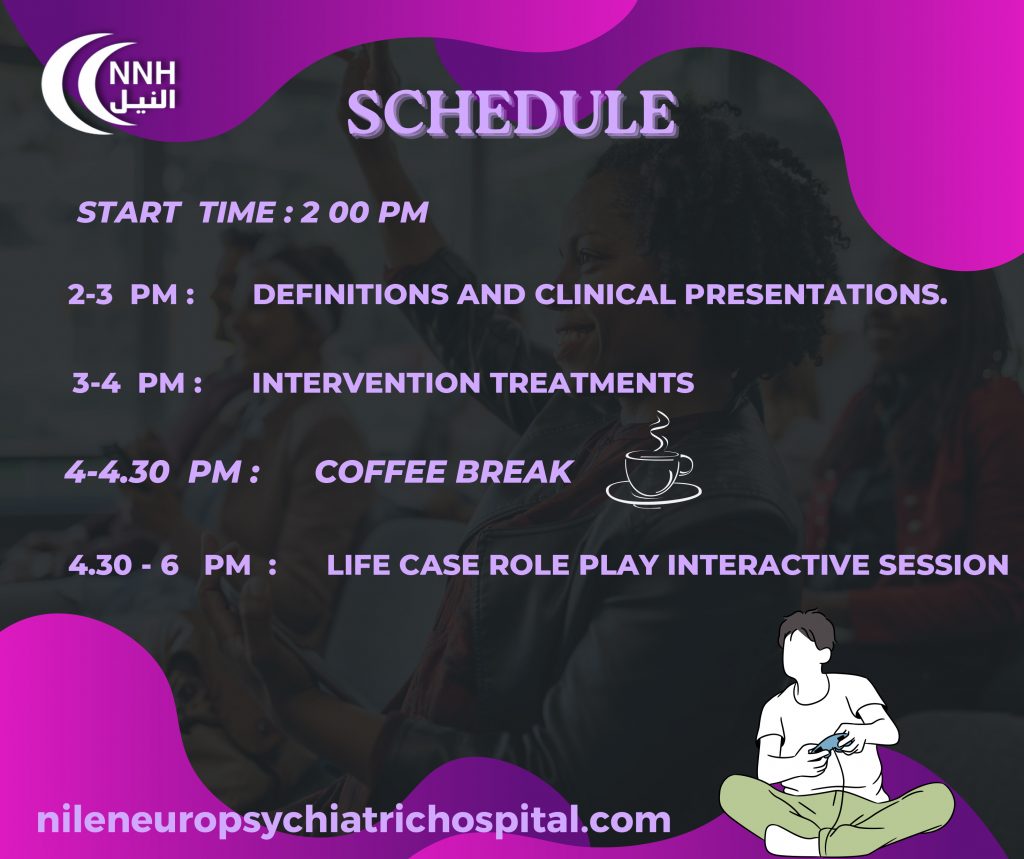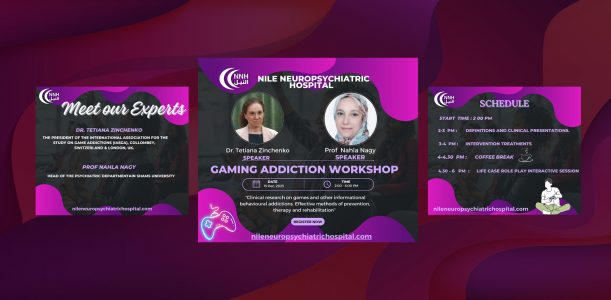The workshop on December 15, 2023 on the topic “Clinical research on games and other informational behavioural addictions. Effective methods of prevention, therapy and rehabilitation” will be conducted by Dr. Tetiana Zinchenko, the President of the International Association for the Study on Game Addictions (IASGA), Collombey, Switzerland & London, UK.



The event is devoted to a more in-depth consideration of precisely the new forms of addictions associated with the development of information technology such as:
- Internet gaming disorder (IGD)
- Gambling disorder (GD)
- Social network sites (SNS) addiction
- Pornography content addiction
- TV series addiction
- Impulse purchases and other types of internet addiction
This is a practical workshop followed by clinical case studies, as well as presentations on clinical and neurobiological phenomena we observe and the characteristics of these addictions.
We are going to present the most effective therapies, prevention, and rehabilitation methods for adults, teenagers, and children to get out of these types of addictions.
The workshop will be useful for professionals and researchers from the field of mental health: psychiatrists, addiction therapists, psychotherapists, psychologists.
Over the past 20 years, thanks to the development of information technology and the internet, the number of active players in both gambling and internet video games has increased hundreds of times. Using information technology to manipulate people’s minds has led to this result. The number of gamers is also increasing enormously. Active players are 41% of the world’s population, 2.3 billion people as of 2017, and by the end of 2023, there were already 3.26 billion players in the world. And these are mostly children, teenagers, and young people under 35.
In 2004 social media SNS Facebook started, and by 2016 it had 2,6 billion аctive users worldwide. Statistical analysis shows that there was more than 4.76 billion social media users worldwide in January 2023, equating to 59.4% of the total global population. In 2022 people spent on SNS on average from 1,5 to 3,7 hours per day. Smartphone users have an average of 7.4 social networking applications on their phones.
As the number of active players and users increases, so does the number of problematic and pathological players and users. The gaming and social media industry is a fast-growing and aggressive business. Over the past 20 years, the gaming industry has increased its revenue by more than 50 times: from an annual revenue of less than $200M at the end of the 90’s to $100 Bn already in 2017, to $180 billion in 2021, and to 196,8 Bn of the end 2022.
A large part of humanity is already consumed by it, and this market will soon have nowhere to expand. To maintain a competitive edge, companies are working on customer retention strategies on their platforms, that is, to get as many loyal customers as possible. The most loyal consumers of products are dependent players, users, and viewers. Entire marketing departments work to create a habit or addiction in consumers. As a result, they create manipulatively disruptive products and algorithms that can trigger the development of behavioural addictions. At the heart of these addictions is dependence on a particular activity, over which a person loses control in terms of frequency of use and time spent. A pathological craving for these activities emerges, increasing over time to an obsessive compulsion which the individual constantly pursues almost without a struggle of motives. The pathological need becomes dominant, crowding out all other interests, hobbies, activities, and attitudes, covering only basic needs: food, sleep, etc.
Treatment and rehabilitation. We will look at the effectiveness of different individual, family, and group, psychotherapy trends which help people who suffer from various types of informational, behavioral addictions, as well as effective methods of social and psychological rehabilitation. Information behavioral addictions result in various and sometimes very serious negative consequences for the mental and physical health of a human, personality, relationships with family members, friends, and work colleagues, and are detrimental to the exercise of professional activities and education, up to the occurrence of complete social maladjustment, the commitment of suicides, and spiritual and moral degradation of the individual. Social negative consequences encompass relationships, education and professional activities, financial and economic area, legal repercussions, impact on physical health.
During the workshop we will focus on effective methods of preventing information behavioral addictions. The current situation is hazardous, and an one-sided approach is predominant in using manipulative and aggressive technologies and destructive content in the game industry, social networks, and advertising.
On the one hand, these technologies are intensively used, tested, and implemented. Their design, software, and promotion strategies are constantly being improved, and large-scale marketing and neuromarketing research is being conducted. On the other hand, we face a deficient awareness not only among the public but also among the scientific and professional community on the harm and negative social and psychological consequences of participation in gambling and internet video games, the problematic use of social networks, and the influence of advertising.
It is necessary to raise public awareness about the consequences of the activities mentioned above and conduct large-scale multifaceted scientific research to initiate discussions and restrictions on the use of manipulative information technologies at the interstate level.
Moreover, we are faced with the fact that it is impossible in principle to solve the problem of information behavioural addictions at the global social level in the consumer format of society.
It is a multi-billion-dollar business that is supported at the governmental level around the world. Neither ethics, culture, nor religion can stop its exponential growth. Companies enrich themselves at the expense of the lives and development of people, both children and adults. In the consumer format, material profit comes first, while in the creative format, human life and the multifaceted development of a human are priority number one.
In the Creative Society we will be able to direct the potential of design production and programming of the game industry, social networks, and other internet resources to serve the purposes of development, learning, and uniting people. People will be able, through the development of information technology, to unite their potential quickly and efficiently, exchange experiences, share vital information, find solutions to the most important problems, accelerate learning and grow in any desired direction.
We aim to bring together professionals from different scientific fields in joint research to improve its accuracy, scope, scientific validity, and practical usefulness.
Workshop content:
- What is the peculiarity of informational behavioural addictions, and how they differ from other dependencies. Clinical and neurobiological features.
- What is a gaming system and what manipulative techniques are used to form habit and addiction in users of different ages.
- The normalisation and promotion of disruptive content in games and social media.
- What is a ‘game dominant’, and it is developed and manifests itself in the form of motivational and imperative thoughts – orders, changes in emotional states from euphoria to despair and then as compulsive desires which lead to the repetition of addictive behaviour.
- Diagnostic tools to identify problematic use and addiction: test questionnaires, structured interview, and projective techniques.
- Game and online content as a material for psychodiagnostics. What can a game’s content, avatar, or online image tell us?
- How and why the value system, meanings and goals of the addicted player or user change.
- How destructive social media content and games of war change the values, worldviews and behavioural patterns of children and adolescents.
- The true and false motives for constant involvement in a game or other Internet activity, despite the negative consequences. What is the hidden meaning and value of this behaviour for the person addicted?
- False irrational beliefs and inferences that support an addiction. How to identify and critically rethink them?
- Negative consequences and comorbid psychopathology.
- Which psychotherapeutic approaches and techniques are the most effective at different stages of a problem awareness and readiness for internal change?
- How co-dependency develops and how family members can help in the rehabilitation process of an addicted person.
The workshop consists of a theoretical part with presentation and discussion and a practical part with clinical cases and psychotherapeutic techniques.


